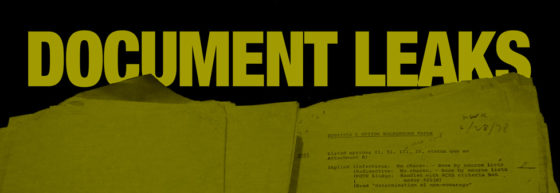Unconventional gas and oil extraction (fracking) expose farmers, livestock and consumers to multiple hazards. Two new publications collect scientific research and other documented reports on the harmful impacts of fracking on rural communities, agriculture and food systems.
On November 17, The Concerned Health Professionals of New York published the 4th edition of the Compendium of scientific, medical and media findings demonstrating risks and harms of fracking (unconventional gas and oil extraction). Like the first edition in 2014, the updated compendium is organized by key topics and written to be intelligible to “public officials, researchers, journalists and the public at large”. It is fully referenced and includes summaries of scientific and medical literature, government and industry reports, and journalistic investigations that document fracking’s harmful impacts.
The 2016 version summarizes some of the threats to agriculture and soil quality, starting on page 131:
“Drilling and fracking take agricultural land out of production and pose risks to the agricultural sector. In California, fracking wastewater illegally injected into aquifers has threatened crucial irrigation supplies to farmers in a time of severe drought. The reuse of fracking wastewater for irrigation in California’s San Joaquin Valley raises questions about contamination of food crops via bioabsorption through roots. Studies and case reports from across the country have highlighted instances of deaths, neurological disorders, aborted pregnancies, and stillbirths in farm animals that have come into contact with wastewater. Potential water and air contamination put soil quality as well as livestock health at risk. Additionally, farmers have expressed concern that nearby fracking operations can hurt the perception of agricultural quality and nullify value-added organic certification. Fracking chemicals in agricultural soils can interact with each other in ways that slow down their biodegradation.”
The second publication is a November 2016 commentary “Health concerns associated with unconventional gas mining in rural Australia” written by M.R. Haswell and A. Bethmont.
The authors discuss the following issues: “Discussions with communities and experts, supported by the expanding research from the USA and Australia, revealed increasing health concerns in six key areas. These are absence of a safe solution to the toxic wastewater management problems, air pollution, land and water competition, mental health and psychosocial wellbeing risks, fugitive methane emissions and lack of proven regulatory regimes. Emerging epidemiological studies suggesting interference with foetal development and birth outcomes, and exacerbation of asthma conditions, are particularly concerning to rural families and livestock.”
For more information fracking’s impacts on food and farming see the Independent Science News book review of: The Real Cost of Fracking: How America’s Shale Gas Boom Is Threatening Our Families, Pets, and Food and the Independent Science News article by the book’s authors Michelle Bamberger and Robert Oswald: Risk and Responsibility: Farming, Food, and Unconventional Gas Drilling.
References:
Concerned Health Professionals of New York. Compendium of scientific, medical and media findings demonstrating risks and harms of fracking (unconventional gas and oil extraction). 4th edition. Available: http://concernedhealthny.org/wp-content/uploads/2012/11/COMPENDIUM-4.0_FINAL_11_16_16.pdf.
Haswell MR, Bethmont A. Health concerns associated with unconventional gas mining in rural Australia. Rural and Remote Health (Internet) 2016; 16: 3825. Available: http://www.rrh.org.au/articles/subviewnew.asp?ArticleID=3825 (Accessed 21 December 2016).
